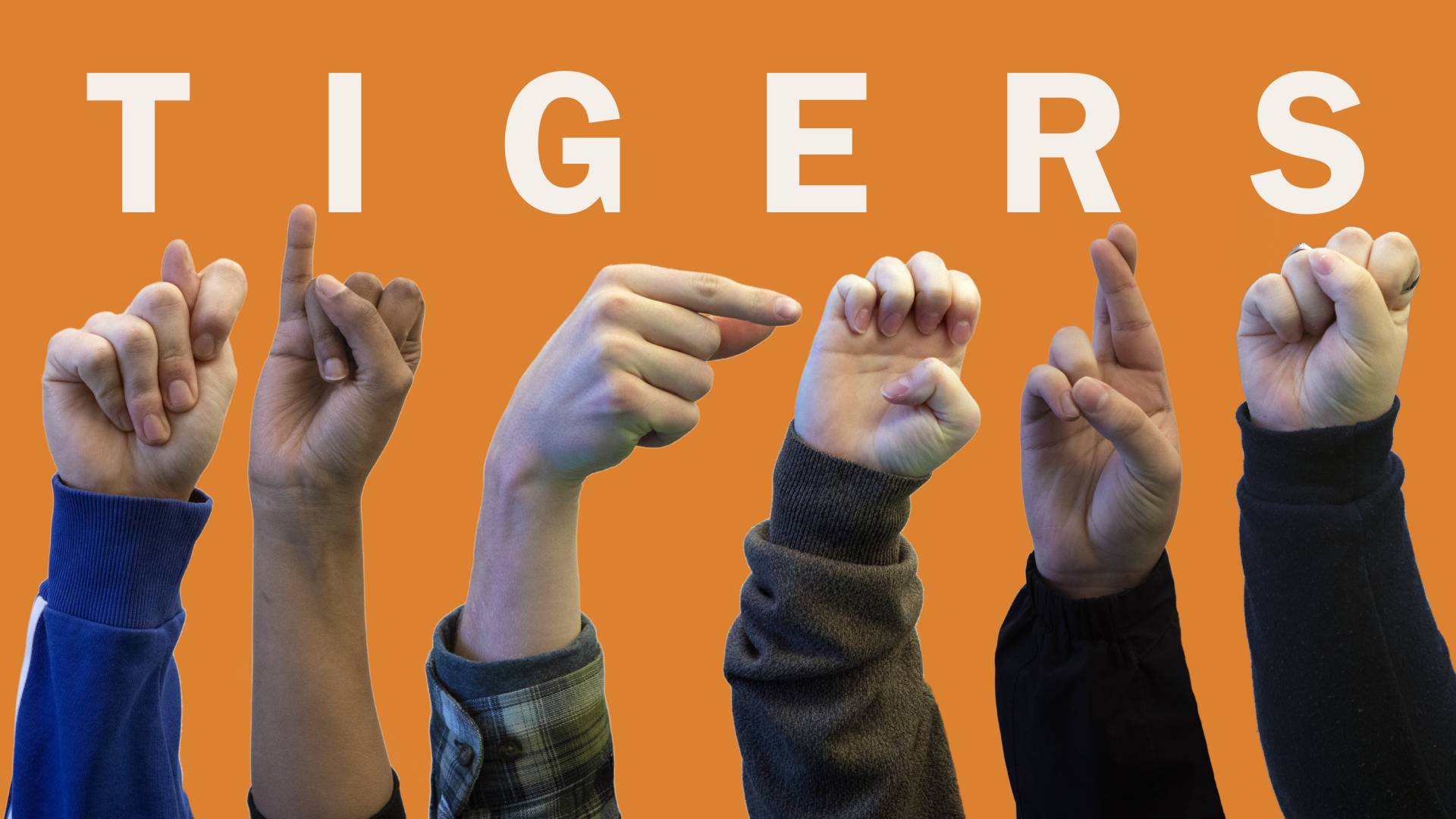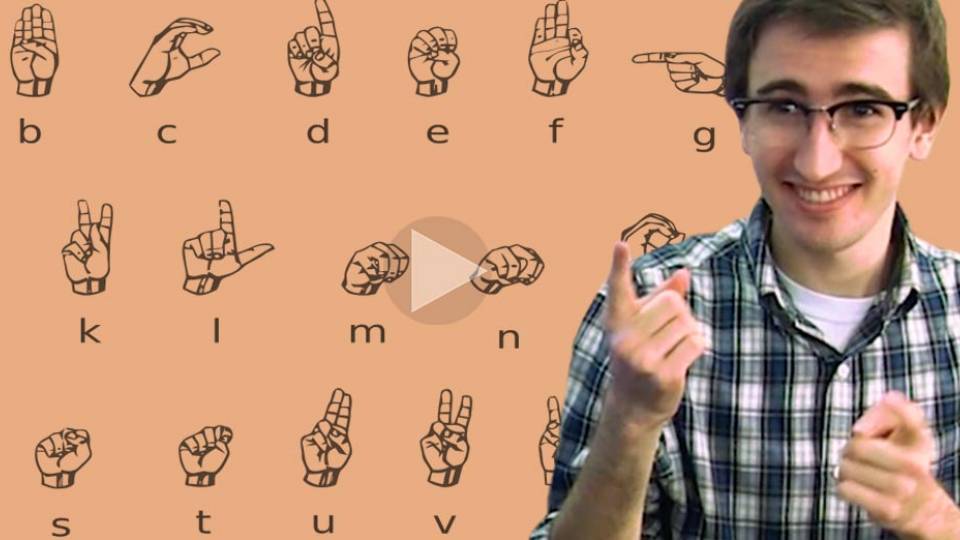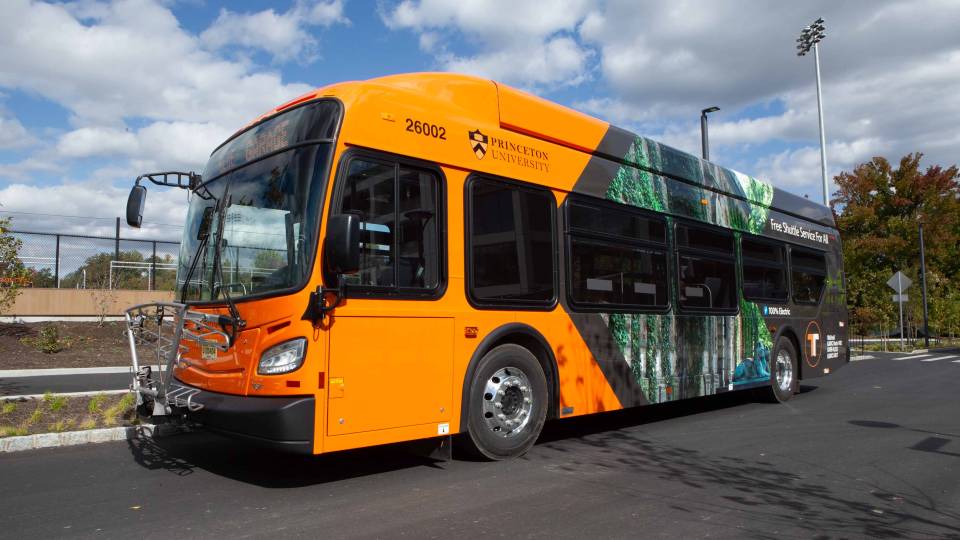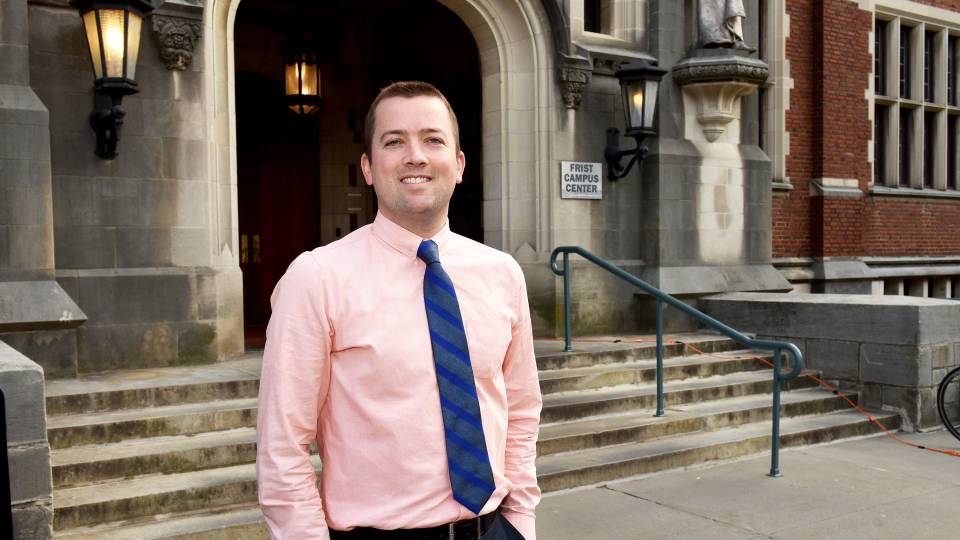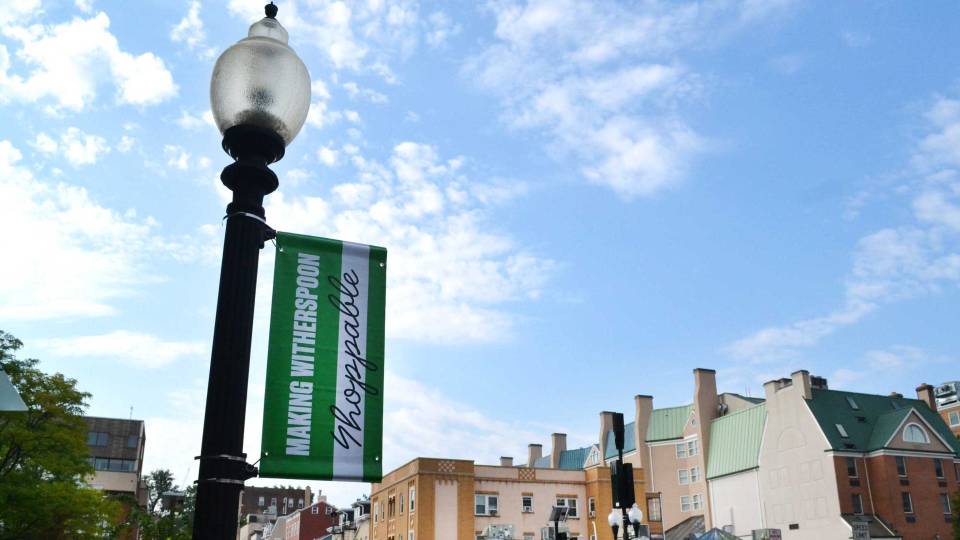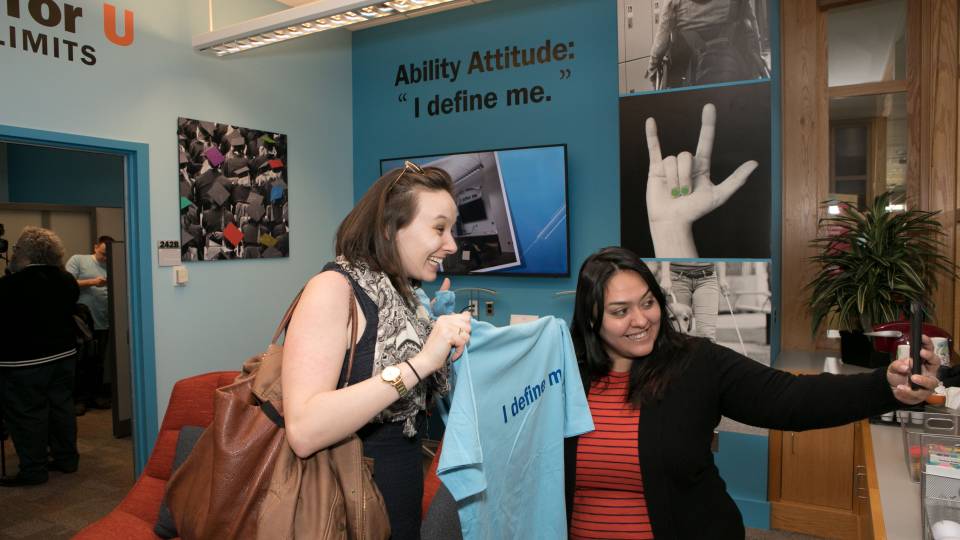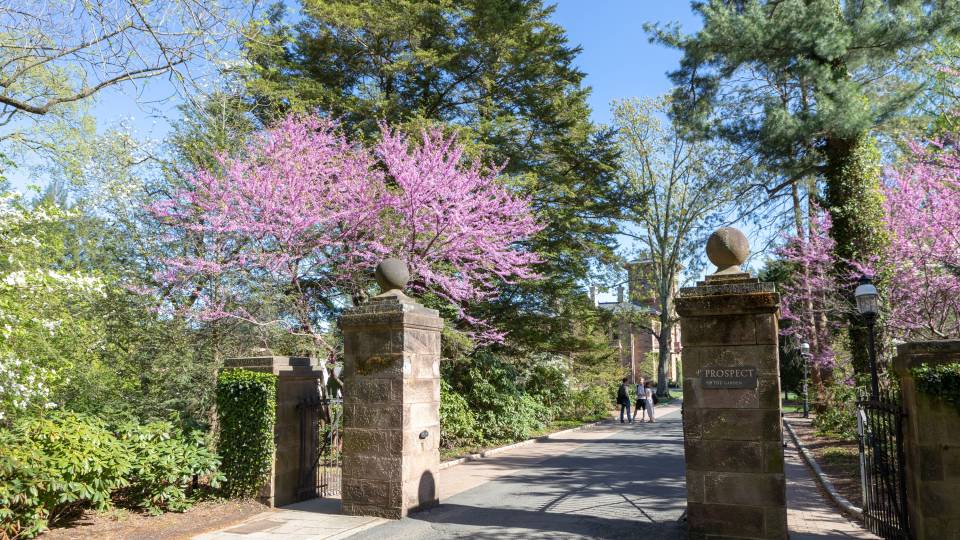Students in the class “American Sign Language 102” spell tigers (Princeton’s mascot) in ASL. Undergraduates will now be able to fulfill the University’s language requirement with ASL.
Students in Daniel Maier’s ASL 102 course are among the first cohort able to fulfill their Princeton language requirement with American Sign Language, which is now the basis of five ASL language courses at the University. Princeton also offers the class "American Deaf Culture.”
The ASL classes, sponsored by the Program in Linguistics, are part of an expanded focus on disability, accessibility and inclusion across the University, including Princeton’s physical campus and digital assets, services and programs for students, and new academic programs.
Below, you can get a glimpse inside ASL 102, as well as read about other recent accessibility initiatives.
Classroom Snapshot: American Sign Language 102
Once students are seated and settled in their Green Hall classroom, the room goes quiet for nearly an hour as they learn to speak and understand their new language by communicating with their hands and facial expressions.
A typical class consists of reviewing the assigned readings, clarifying questions and concerns, and breaking into groups to show they understand the material. The session ends with some “speed signing” to improve skills.
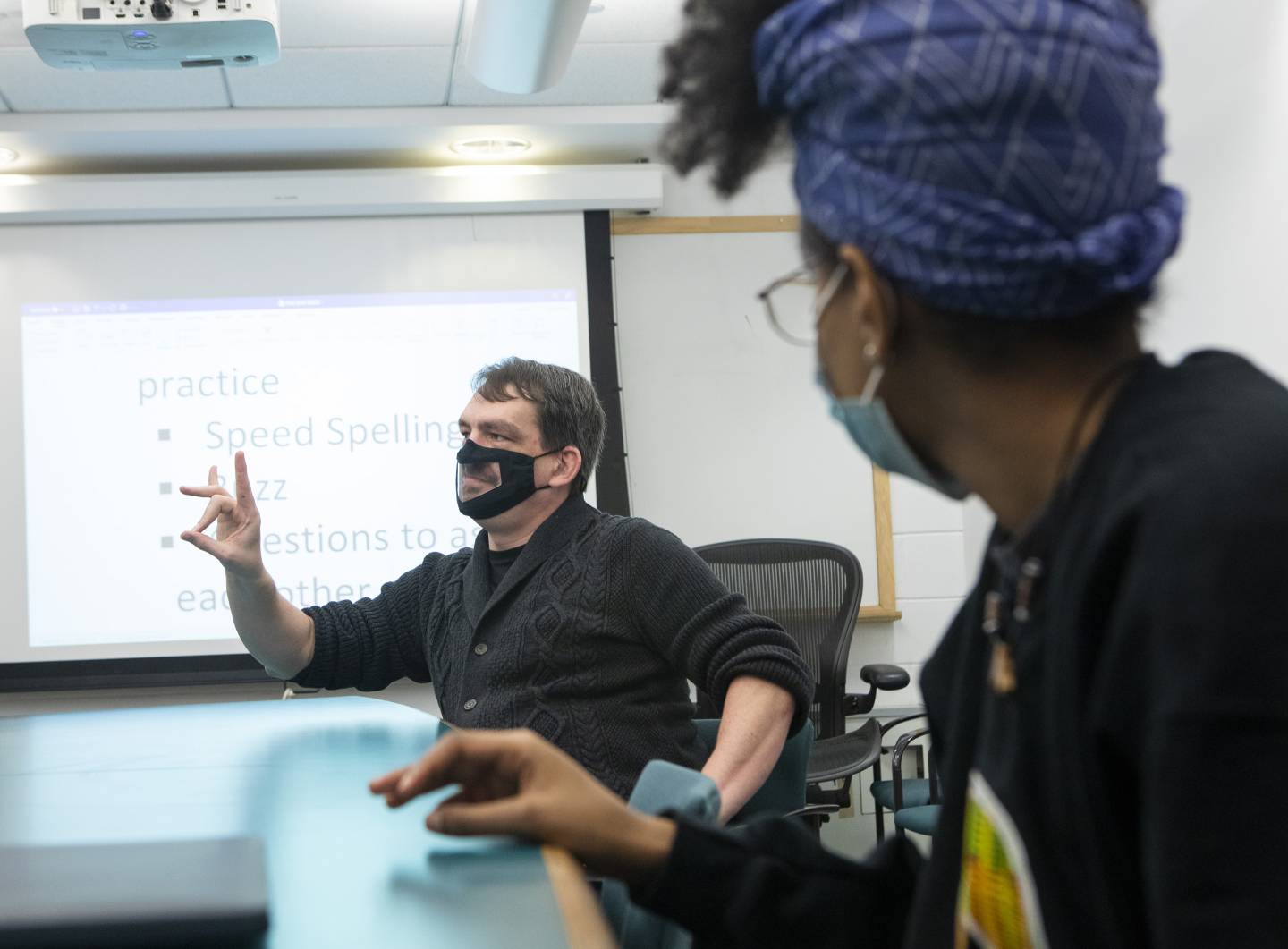
Daniel Maier (left) teaches the class ASL 102 in Green Hall. Maier says: “This is a treatment of a sign language on the same level of other world languages. Princeton’s expansion of the ASL program to satisfy language requirements is an important message to be sending.”
Maier, who recently joined the Princeton faculty as part of an expansion of the ASL program at the University, said he hopes the students will continue, beyond Princeton, “with a better understanding of the richness and complexity of ASL and a better understanding of Deaf people and the issues that impact them.”
“For me, this moment is a validation,” said Maier, a sign language linguist who is a lecturer in The Humanities Council. “This is a treatment of a sign language on the same level of other world languages. Princeton’s expansion of the ASL program to satisfy language requirements is an important message to be sending.”
“The Princeton students I have seen so far are passionate, gifted and invested in learning,” he said, and some have taken their lessons beyond the classroom. Paige Landry, a first-year student from Worcester, Massachusetts, who plans to major in ecology and evolutionary biology, said she was able to communicate better with Deaf customers at a restaurant near her hometown where she waitresses during school breaks. ASL, she said, “helps make the world more accessible.”
Noah Buchholz joined the Princeton faculty in 2018 to teach the University’s first for-credit ASL class. Before then, ASL classes were non-credit. This year, Buchholz is also teaching the Deaf culture class, LIN215.
“It is my hope that the American Deaf Culture and ASL courses will help students become more aware of Deaf and disability issues around the world,” said Buchholz, a lecturer in the Humanities Council and the Program in Linguistics. “This is very important because in many conversations on diversity and inclusion, disability is either kept in the margins or completely neglected. I strongly believe that we cannot achieve transformative diversity if we do not include disabled people in our vision of diversity.”
The expansion of the program has drawn praise from former students, including Class of 2017 graduate Colin Lualdi, who is Deaf and founded the student ASL club. Lualdi said Buchholz has made real impact at Princeton: “We would not be where we are now if it were not for him, indeed.”
“Princeton embracing sign language and Deaf culture is a powerful asset,” Buchholz said. “This pushes academia to acknowledge Deaf people’s culture and language. Hopefully, this will lead mainstream society to become more inclusive of Deaf people as well as disabled people in general.”
Office of Disability Services
For more than 15 years, the Office of Disability Services (ODS) has facilitated accommodations to support students with physical and mental impairments. ODS also serves as a resource to administrative and academic departments, faculty, staff and campus visitors with disabilities. ODS staff aim to provide personalized services so students can fully access academic and campus life, and thrive during their time at Princeton.
ODS recently launched ACCOMMODATE, a new online tool that aims to make the disability accommodation process easier for students and the faculty who assist in implementing some of their approved accommodations. The system improves and simplifies student disability services processes, creates efficiencies for students, eliminates paper transactions, reduces email exchanges, and provides students with disabilities access to their records at any time.
AccessAbility Center
Opened in 2017, the AccessAbility Center is a student gathering space designed for universal access and intended to foster conversation about ability, access and difference.
The center, located in Frist Campus Center 242, is hosting events again this spring after pausing in-person programs during the COVID-19 pandemic. On March 28, Tony-award winner Ali Stroker will talk about “turning your limitations into your opportunities.” Stroker is the first actress who uses a wheelchair to appear on the Broadway stage and to win a Tony.
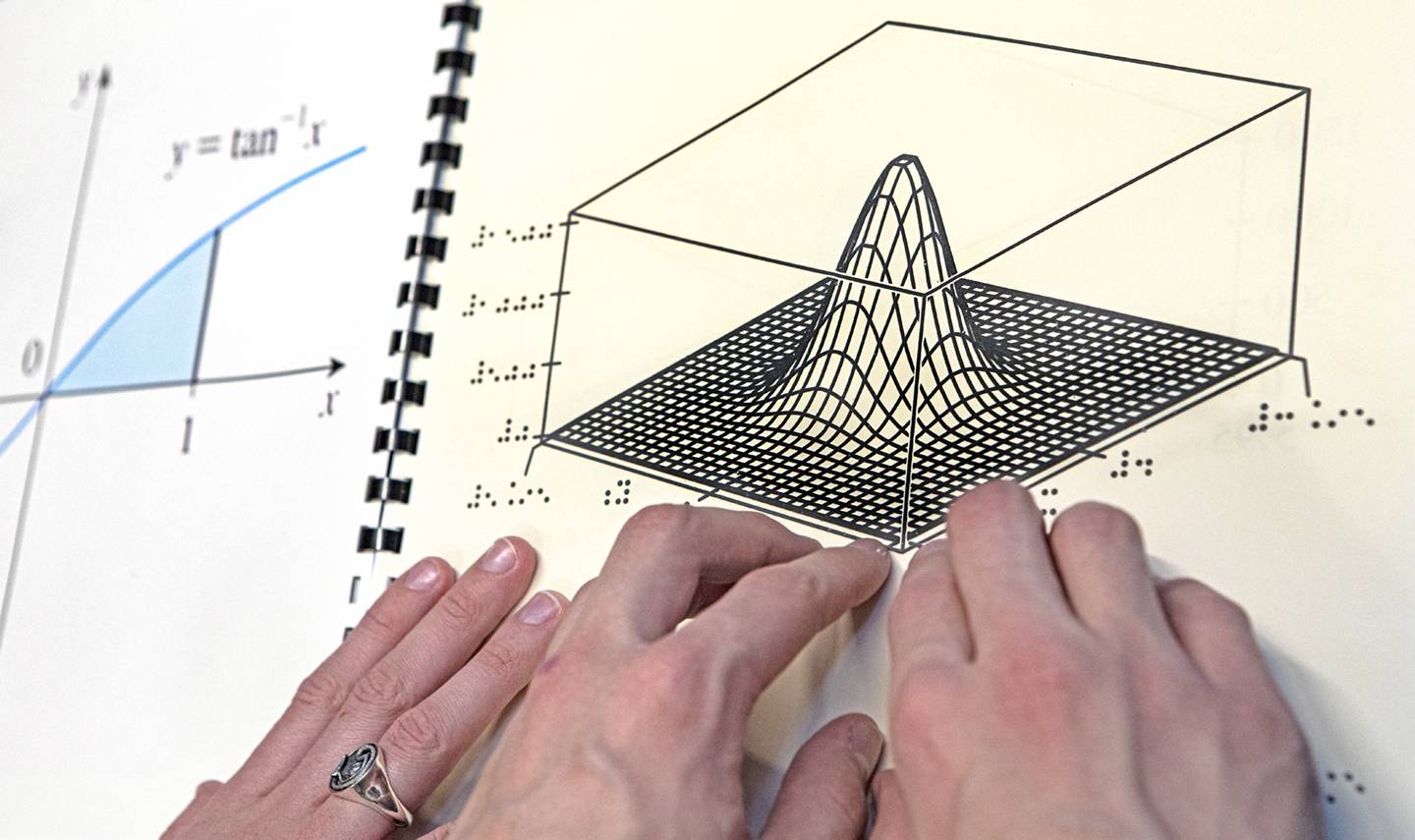
The Office of Disability Services helps provide blind students with accessible course materials, including raised-line tactile graphics for science, engineering, math and other classes.
“The name ‘AccessAbility Center’ expresses two of our core philosophies: supporting access for all and focusing on ability,” ODS Director Elizabeth Erickson said. “The center was founded on the premise that in order to value disability, you need to understand and appreciate different abilities. All people have varying abilities, and we believe that these differences bring rich texture and unique beauty to our community.”
The center includes physical access features, such as an automatic door opener, adjustable-height desks and chairs, and ergonomic computer equipment. Sensory features include Braille labels on equipment, special computer workstations for students who are hard of hearing or have low vision, and a light therapy box for seasonal affective disorder (SAD).
TigerAccess
Piloted last semester by Transportation and Parking services, TigerAcess is a “curb-to-curb” van service for students, staff, faculty or visitors with a mobility concern. The University’s regular TigerTransit shuttles are also accessible to disabled passengers, but the TigerAccess van provides a more flexible and personalized service.
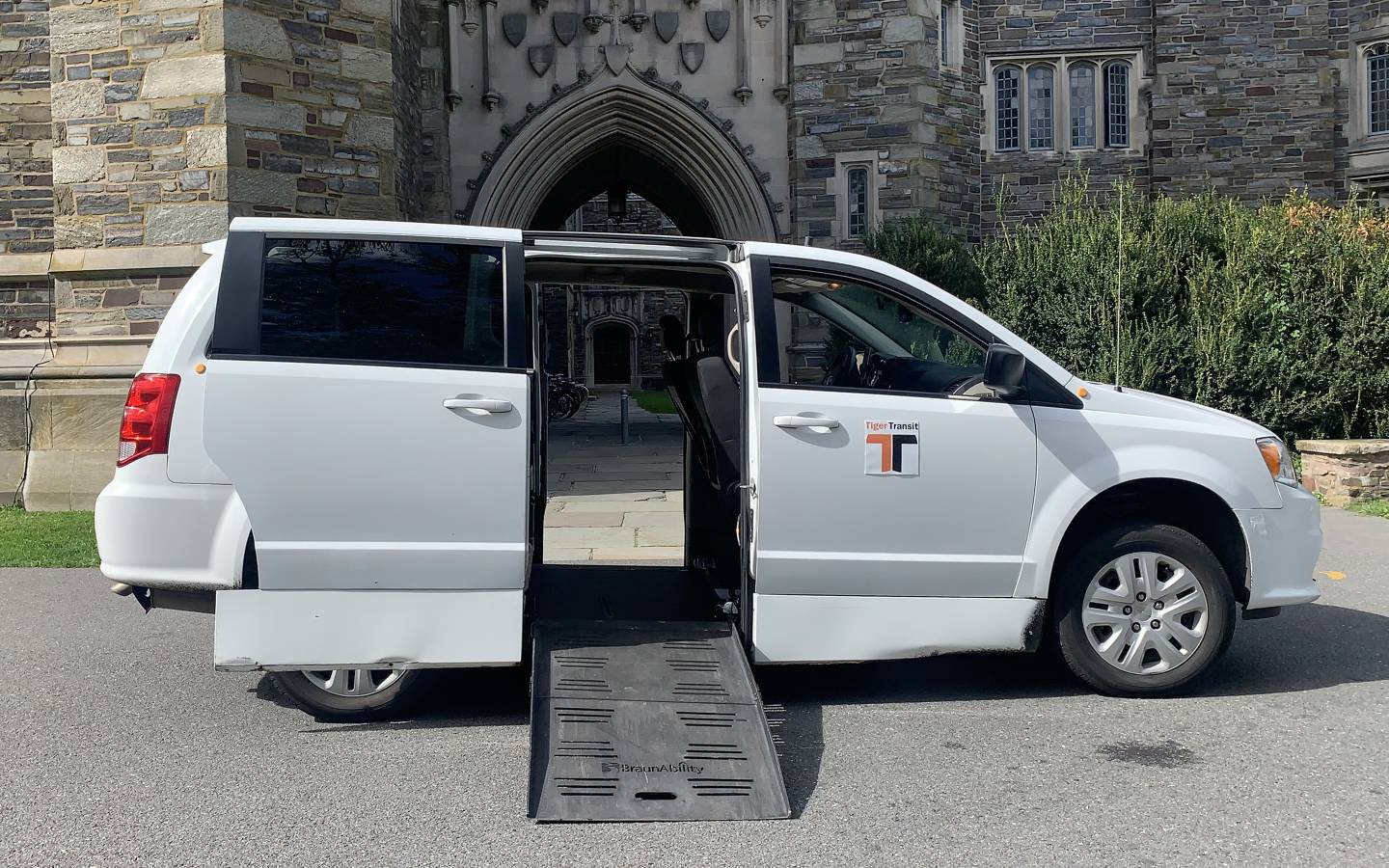
TigerAccess is a “curb-to-curb” van service for students, staff, faculty or visitors with a mobility concern. The University’s regular TigerTransit shuttles are also accessible to disabled passengers.
TigerAccess currently operates any time that the fixed route TigerTransit service does. Rides booked 24 hours in advance are guaranteed service, and day-of requests are also usually accommodated. Requested rides are serviced by a vehicle that holds up to three passengers.
As more construction kicks off around campus, TigerAccess will also serve as a means to bypass areas in flux that may prove to be temporarily more challenging for individuals with mobility concerns.
“Accessibility, along with safety improvements, is always a primary focus for Transportation and Parking Services (TPS) when we design new services,” said TPS Director Charles Tennyson. “In our Campus Mobility Framework, everything starts with first thinking about accessibility, and if we do this well, it benefits all members of the community.”
Nassau Hall elevator
Another visible example of how our historic campus has become more accessible is the elevator installed in Princeton’s oldest building, Nassau Hall. Built in 1756, Nassau Hall now houses administrative offices. Senior Naomi Hess, who has muscular dystrophy, took the inaugural elevator ride last semester, becoming the first person in a wheelchair to navigate the 265-year-old sandstone building without assistance.
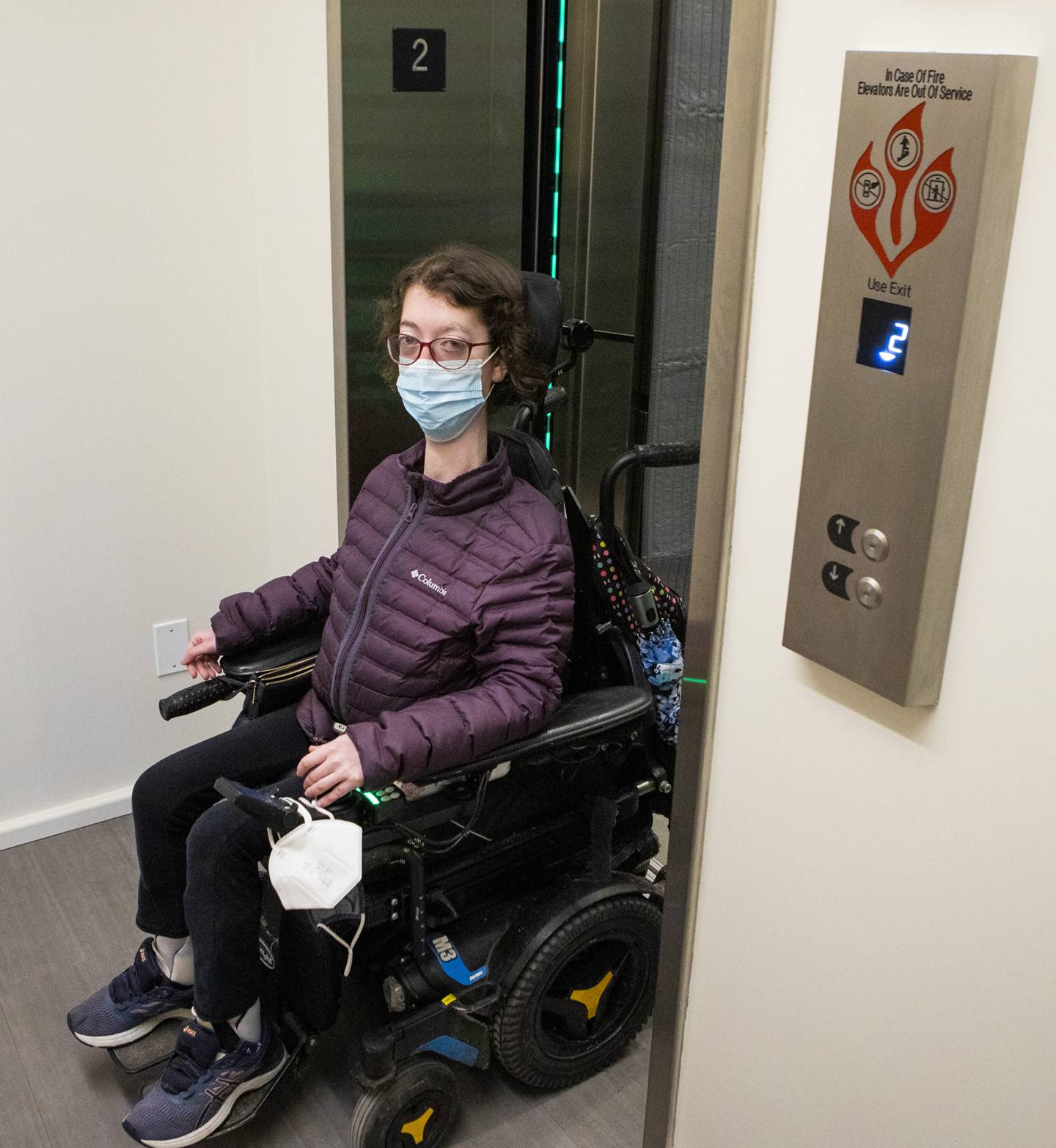
Princeton senior Naomi Hess rides the new elevator installed in Nassau Hall. The administrative building is Princeton's oldest structure, built in 1756.
For more information on how people with mobility issues can more easily navigate campus, view Princeton’s Accessibility Map on the Facilities website.
Digital Accessibility
The Office of Information Technology provides services to help ensure the University's digital resources and information are accessible to a broad range of people, including those with disabilities.
OIT’s Digital Accessibility team supports offices who are responsible for technologies, websites and digital information used for teaching and learning, research, administrative activities and public engagement.
Digital accessibility is focused on removing barriers for people with disabilities so they can access Princeton.edu websites, as well as for students, faculty and staff using digital tools as part of their work on campus. In addition to the navigation and use of websites and tools, digital accessibility encompasses text, images, charts and graphs, video, and audio.
Services for the campus community include guidelines, training and events, website testing, consultations, and technology pre-purchase reviews. The Digital Accessibility website provides practical tips and guidance. OIT staff are also available for department and one-on-one digital accessibility trainings and consultations.
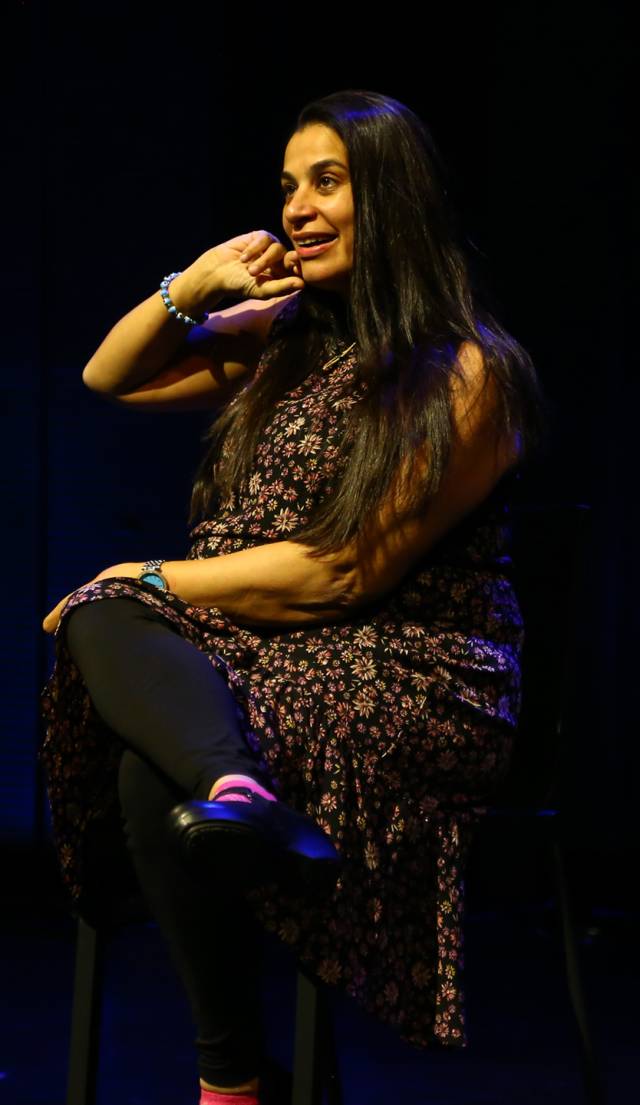
Disability advocate and comedian Maysoon Zayid is among the Lewis Center for the Arts Fellows for 2021-23.
Lewis Center for the Arts Fellow
Disability advocate and comedian Maysoon Zayid is among the Lewis Center for the Arts Fellows for 2021-23. Last semester, she taught “The Art of Stand Up” for undergraduates, and she led a Wintersession workshop on “How To Be Your Own Disability Advocate” this past January.
Zayid has spent the past two decades fighting for her right to equal access. In the workshop, she shared her wisdom and experience to teach participants who identify as disabled how to advocate for themselves. She talked about how to de-stigmatize asking for accommodations and how to demand equal access not as a favor, but because it is the law.
The Lewis Center for the Arts offers accessibility accommodations that allow audience members with disabilities to access the center's performances, exhibitions, readings, screenings, concerts and lectures.
